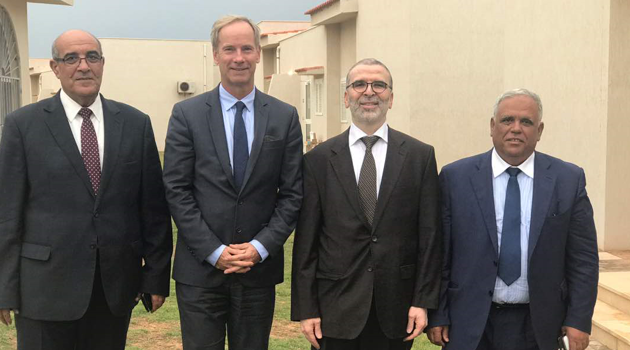The chairman of the United Nations Security Council (UNSC) Libyan Sanctions Committee, Olof Skoog, has confirmed the UN’s commitment to the prevention and halt of the illegal export and sale of Libyan crude and refined products outside of existing legal frameworks.
Parties also discussed the importance of the exclusion of parties who attempt to extort the oil sector through the political process and its protection from political and regional quotas.
In a meeting with NOC chairman, Eng. Mustafa Sanalla, on November 1, 2018, discussions focused on the role of NOC during this current transitional period and the challenges faced by the institution in maintaining Libyan stability. The Sanctions Committee chairman confirmed that all concerted efforts are being undertaken to support this endeavour.
NOC's chairman thanked the committee for its steadfast role in preventing the illegal sale of crude and refined products. Sanalla further repeated his call on the international community and UN to pursue and issue sanctions against those attempting to blackmail or take advantage of the oil sector - and for their exclusion from the political process. He stressed the importance to increase efforts to ensure the oil sector is removed from political and regional quotas, as well as from individuals with an agenda and conflicting personal interests.
Through the support of the UNSC sanctions regime and Panel of Experts reports, NOC has been able to preserve the sovereignty of the institution and continue in its work for the benefit of the Libyan people. Groups attempting to illegally smuggle and sell Libyan crude and refined products will be subject to legal pursuit, as witnessed at the port of Zuwara.
The NOC chairman credited the role of the UNSC permanent members and EU member states for their support in preserving stability in the country, and the importance of the sanctions regime as a deterrent to parties seeking to undermine NOC operations and the Libyan economic recovery.
The meeting was also attended by the NOC Board of Directors, members from the Permanent Missions to the UN from the UK, France, Russia, Spain and Kuwait, and the Ambassadors of Sweden and Netherlands to Libya.
(Source: NOC)





